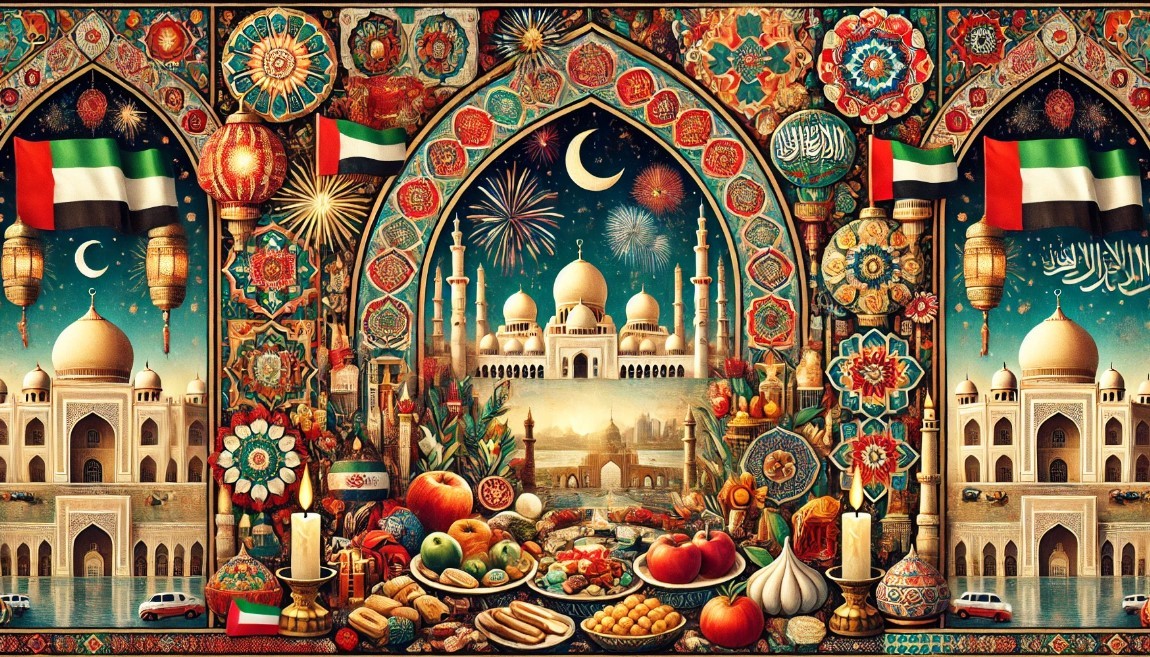Israel Calendar in 2025 - Full List of Public Holidays, Observances And Celebrations
An Overview of Holidays and Festivals in Israel
Jewish tradition celebrates holidays and festivals on Hebrew calendar dates. Jews celebrate and fast on holidays and festivals to commemorate events, miracles, and disasters in their history. Some holidays were created by the Torah and others by Jewish sages. After Israel was founded, national holidays and memorials were added. Many Israelis celebrate ethnic, Muslim, and Christian holidays.
The annual Jewish cycle begins with Tishrei, the first Hebrew month, and features deeply spiritual holidays. In a 1926 lecture, Hayim Nahman Bialik compared festivals to rising mountains, which represent deep shocks, some volcanic, that occurred beneath the nation's ground.
For thousands of years, Jews fiercely observed festival commandments out of love for the Jewish people. Throughout the generations, these holidays became increasingly important to Jewish and Jewish-Israeli culture. Israelis and Diaspora secular, traditional, and religious people connect and talk during the holidays.
Yom haAtzma'ut, the Independence Day of Israel, is a significant holiday. Celebrations abound on this joyous occasion, which marks the anniversary of Israel's establishment in 1948 and is marked by grand ceremonies, floats, and fireworks.
In addition to the Jewish New Year (Rosh ha-Shanah), Yom Kippur (the Day of Atonement), and the week-long Feast of Tabernacles (Sukkot), there are other significant holidays. Although not a single one of the eight days that make up Hanukkah, the Festival of Lights, is observed as a public holiday. With a national holiday marking the first day of the eight-day celebration, the Exodus from Egypt, also known as Passover, is observed.
Jews typically observe these holidays with special prayers, rituals, family get-togethers, and celebratory meals because of the deep religious and cultural meaning they hold for the Jewish people.
Israel celebrates a number of national holidays in addition to its Jewish ones. Yom haScho'a, also known as Holocaust Remembrance Day, Yom haZikaron, which honors the sacrifices of soldiers and terrorists, and Yom HaAliyah, also known as Aliyah Day, celebrates the arrival of Jews to Israel.
Learn more: Say Happy Birthday in Hebrew - Best Wishes, Quotes and Birthday Popular Song
The Hebrew Calendar
Jews use the lunisolar Hebrew calendar to schedule holidays and religious observances. Its lunar-solar structure is unique among calendar systems.Every month begins with the new moon. Adar II is added to the Hebrew calendar in leap years to align the lunar months with the solar year, which is 365.25 days. This aligns the calendar with agricultural seasons.
The weekly day of rest, "Shabbat," is Saturday in the Hebrew calendar.
The Hebrew calendar uses the traditional calculation since creation, with 5785 as the current year. However, the international Gregorian calendar is often used alongside the Hebrew calendar in daily life.
Naming of the months in the Hebrew calendar:
Nissan
Ijar
Sivan
Tammuz
Av
Elul
Tishrei
Cheshvan (or Marcheshvan)
Kislev
Zwet
Shevat
Adar (or Adar I in leap years) and Adar II (in leap years)
Learn more: Jewish Calendar in 2025: Important Dates, Holidays, Observances and Celebrations
Full List of Public Holidays and Observances in Israel for 2025
1 Jan Wednesday Hanukkah (Day 7) Observance, Hebrew
Hanukkah (Day 7) is not a public holiday. Businesses have normal opening hours.
2 Jan Thursday Hanukkah (Day 8) Observance, Hebrew
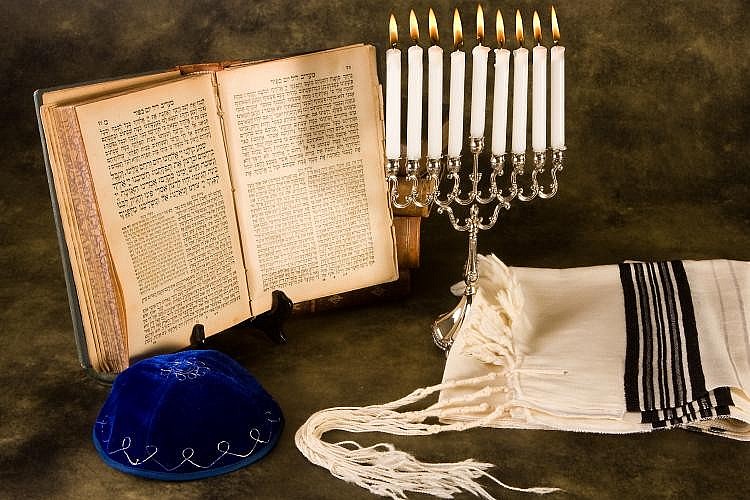 |
| Candles are lit during the Hanukkah period |
The last day of Hanukkah marks the end of Hanukkah, also known as Chanukah or Festival of Lights. Hanukkah is an eight-day Jewish observance that remembers the Jewish people's struggle for religious freedom.
Hanukkah (Day 8) is not a public holiday. Businesses have normal opening hours.
10 Jan Friday Asarah B'Tevet (Tenth of Tevet) Observance, Hebrew
Asarah B'Tevet is not a public holiday. Businesses have normal opening hours.
13 Feb Thursday Tu Bishvat Observance, Hebrew
 |
| Tu B'Shevat is the day that trees come of age according to Jewish law |
Tu B'Shevat, also known as Tu B'Shevet or Tu Bishvat, is the day that trees come of age according to Jewish law. Jewish people mark this day by eating a symbolic meal of fruit and nuts or planting trees.
Tu Bishvat is not a public holiday in Israel. Businesses have normal opening hours.
13 Mar Thursday Fast of Esther Observance, Hebrew
Fast of Esther is not a public holiday. Businesses have normal opening hours.
13 Mar Thursday Purim Eve Observance, Hebrew
Purim Eve is not a public holiday. Businesses have normal opening hours.
14 Mar Friday Purim Observance, Hebrew
 |
| Purim Day in Israel |
Purim, which in Hebrew means "lottery," celebrates the heroism of Queen Esther in Ancient Persia, who saved her fellow Jews from an imminent plot to wipe them out. The story is read in Hebrew from a megillah, or scroll, where cheering for Esther and jeering the villain, Haman, is enthusiastically encouraged.
Traditionally, the megillah is read twice -- once on the evening of Purim and again the next morning (the holiday lasts from sundown to sundown).
It is not a public holiday in Israel, but employers may grant optional paid leave. Many offices, shops, and public institutions will operate on a reduced basis. Schools will be closed, but public transportation will operate as usual, and newspapers will be published.
Purim is characterized by public readings of the Book of Esther, giving mutual gifts of food and drink, giving charity to the poor, and a festive meal. Other customs include drinking wine and the wearing of masks and costumes.
A popular treat during Purim is Hamantash, a filled-pocket pastry with a distinctive three-cornered shape. The shape is achieved by folding in the sides of a circular piece of dough, with a filling placed in the centre. Popular fillings are fruit jam, cheese or poppy seeds. They are said to be named after Haman as he wore a three-cornered hat.
Purim greetings are simple: “Happy Purim” will suffice. Want to wish someone a happy Purim in Hebrew? Tell them, “Chag Purim sameach.” In Yiddish, you can say “ah freilichen Purim.”
16 Mar Sunday Shushan Purim (Jerusalem) Observance, Hebrew
Shushan Purim is not a public holiday. Businesses have normal opening hours.
8 Apr Tuesday Aliyah Day, Official Holiday, Business as usual
Aliyah Day is not a public holiday. Businesses have normal opening hours.
12 Apr Saturday Passover Eve, Observance, Hebrew
Passover Eve is not a public holiday. It falls on Saturday, 12 April 2025 and most businesses follow regular Saturday opening hours in Israel.
13 Apr Sunday, Passover/'Festival of Freedom' (Day 1), National Holiday, Hebrew
 |
| Passover starts on the 15th day of Nisan in the Hebrew calendar and lasts for 7 or 8 days, usually in April |
Passover is celebrated worldwide as one of the most important holidays of Judaism and Jewish culture, but it is especially significant in Israel, “the Land of Promise,” where the Jews were led after their miraculous redemption from slavery in Egypt.
Pesach, also known as the 'Festival of Freedom', is an eight-day Jewish holiday (seven in Israel) commemorating the Israelites' exodus from Egypt.
The first and last days are Israeli holidays.
Three quarters of Israel's 8.5 million people are Jewish, and most are “traditional Jews.” Due to its deep cultural roots, even 20% of “secular Jews” observe Passover.
Passover commemorates the liberation of the Jewish people from Egypt after God sent 10 plagues, the last of which killed the firstborn son in each house. During the plague night, the death angel “passed over” Jews who painted their doorposts with lamb's blood.
Israel celebrates Passover for seven days, with the first and last days being the most important. Many observe the Sabbath's non-working requirements all seven days. As Passover occurs in spring, all leaven (yeast) must be cleaned out of the home, making it a chance for “spring cleaning” before Passover.
The first and main event of Passover is the "seder," or Passover dinner, on the 15th day of Nisan. Tradition says Jewish days start at sunset, around 6pm, and end at the same time the “next day.” Passover celebrations in Israel begin in the evening.
Families will gather for Passover dinner, which is symbolic and ceremonial. The table is decorated with fine china and silverware. A 15-step ritual recounts the Exodus from Egypt and involves drinking four cups of wine at certain times.
The Old Testament Psalms 113–118, the “Hallel,” are recited near the end. The meal includes matzah, unleavened bread, and "maror," bitter foods like horseradish and romaine lettuce. Traditional meal prayers end with “Next year in Jerusalem”.
Find the “afikoman,” a special matzah that parents hide in their homes during Passover, and kids can win a prize.
Israel has nearly endless attractions, so 3.5 million tourists visit annually. Passover is the most solemn and festive time to visit the Land of Promise.
14 Apr Monday Passover (Day 2), Observance, Hebrew
Passover (Day 2) is not a public holiday. Businesses have normal opening hours.
15 Apr Tuesday Passover (Day 3) Observance, Hebrew
16 Apr Wednesday Passover (Day 4) Observance, Hebrew
17 Apr Thursday Passover (Day 5) Observance, Hebrew
18 Apr Friday Passover (Day 6) Observance, Hebrew
19 Apr Saturday Passover (Day 7), National holiday, Hebrew
Passover begins on the 15th* of the Hebrew month of Nisan.
In Exodus 12:16 and Leviticus 23:8, it says that the seventh day of Passover should be a full holiday. In synagogues, there will be special memorial prayers for the dead as well as holiday services and readings.
If you want to visit Israel during Passover, you may have to deal with more people on the roads and hotels that are full before the holiday.
The two public holidays that follow Passover make it a popular holiday season. Chol Hamoed is the name for the middle of the holiday when most people don't have to go to work or school.
Before the holiday starts, religious Jews will carefully remove and throw away all chametz (bread that rises when baked) from their homes, making sure that not a single crumb is left. The name for this custom is bedikat chametz.
They won't eat any leavened foods during the holiday. Instead of bread, pasta, and cakes, they will eat matzoh and other specially made foods.
23 Apr Wednesday, Yom HaShoah, Observance, Hebrew
 |
| Yom HaShoah commemorates the lives and heroism of Jewish victims of the Holocaust during World War II. |
Although Yom HaShoah (also known as Yom HaShoa, Yom HaZikaron laShoah ve-laGvura) is officially called "Remembrance Day for the Holocaust and Heroism," it is more commonly referred to in English as "Holocaust Remembrance Day." On this day, we honor the bravery and lives of the six million Jews who perished in the Holocaust between 1933 and 1945. On the 27th day of Nisan, the first month of the Jewish calendar's ecclesiastical year, falls Yom HaShoah.
There is no public holiday on Yom HaShoah. Companies open for business during regular hours.
30 Apr Wednesday Yom HaZikaron Observance, Hebrew
Yom HaZikaron is not a public holiday. Businesses have normal opening hours.
1 May Thursday, Yom HaAtzmaut/Independence Day, National Holiday, Hebrew
 |
| Independence Day in Israel |
Israel's Independence Day is May 14, 1948. That's when the Declaration of Independence was read and signed in Tel Aviv by the provisional government.
It's on the fifth day of Iyar on the Hebrew calendar. The holiday date changes every year because the Hebrew calendar is lunisolar. As the name suggests, a lunisolar calendar is based on the moon and the sun.
As a result of the Holocaust, a lot of people fled to Israel in the 1930s and 1940s. After WWII, a lot of these people had to move, and they wanted to make "allyah" a Jewish state. The British said no because they were in charge of Palestine and didn't want to make the Arab state mad. Arabs, Jews, and the British fought until the UK let the UN step in.
In 1947, the UN Special Committee on Palestine suggested ending British rule and splitting Palestine into two states, one Jewish and one Arab. An area around Jerusalem would be controlled by the whole world. Jewish leaders agreed with the plan, but two-thirds of the Palestinians, who were Arab, were against any Jewish settlement. After the UN split the area into two parts, on January 29, Palestinian guerrillas attacked Jewish neighborhoods and settlements. From November 29, 1947, until May 14, 1948, when Israel was founded, there was a civil war between Palestine and Israel.
After sundown on Yom Hazikaron, the Israeli flag is raised from half-staff to the flagpole. The president of Israel congratulates the people on their independence. In a parade, the military waves branch flags. After the evening parade, Israelis light a torch, which is called hadiakat masuot, to remember what they've done.
People in big cities like free government programs. Folk dances and songs from Israel are done in the streets. The Israeli Defense Forces show off their tech all the time. The Israel Prize is given at the end of the day to a person who has made a special contribution to Israel's culture, science, arts, or humanities.
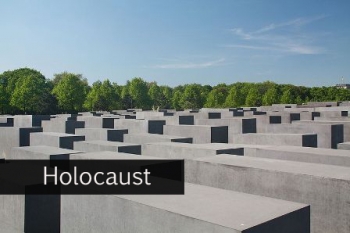 International Holocaust Remembrance Day - History, Theme, Celebration this year International Holocaust Remembrance Day - History, Theme, Celebration this year |
16 May Friday Lag BaOmer Observance, Hebrew
26 May Monday Jerusalem Day Observance, Hebrew
1 Jun Sunday Shavuot Eve Observance, Hebrew
2 Jun Monday, Shavuot/Pentecost, National holiday, Hebrew
 |
| Shavuot (Pentecost): The Feast of Weeks |
The biblical pilgrimage festivals of Pentecost, Shavuot, and Shah-voo-OH-t mean "seven weeks" and "three months," respectively.
Also called the "Feast of Weeks," it is a significant Jewish festival. Pentecost was the name given to it by Greek-speaking Jews because it takes place fifty days after Passover.
The celebration takes place 49 days after Passover, marking a jubilee of days, if that is not included in the calculation. The Omer Counting has come to a close.
Decorating one's home and synagogue with various plants, flowers, and even trees is part of the local tradition, as is placing greenery on the floor.
In addition to commemorating a bygone harvest festival, the verdant foliage of the mountains of Sinai and the trees on Pentecost bring to mind the day of judgment for fruit trees, respectively.
13 Jul Sunday 17th of Tammuz Observance, Hebrew
2 Aug Saturday Tisha B'Av Eve Observance, Hebrew
3 Aug Sunday Tisha B'Av Observance, Hebrew
22 Sep Monday Rosh Hashana Eve Observance, Hebrew
23 Sep Tuesday, Rosh Hashana/Jewish New Year, National holiday, Hebrew
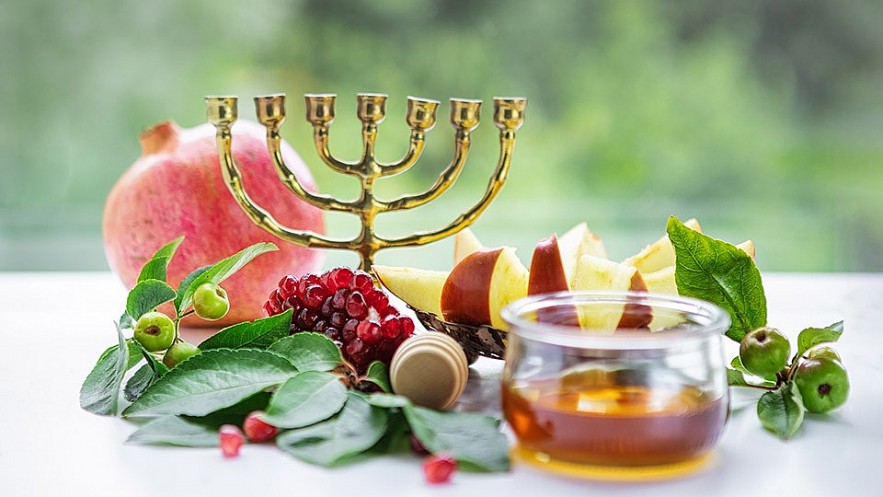 |
| Happy Jewish New Year |
The Jewish New Year celebration is known as Rosh Hashanah, which translates to "Head of the Year." Despite the fact that it occurred on the first day of the month of Nissan in Biblical times, it is currently observed over a two-day period in modern Israel, specifically the first and second days of the Jewish month of Tishrei.
The Jewish Holiday of Rosh Hashanah is commonly referred to as the New Year's Day of the Jewish calendar. However, it has a multifaceted significance: it is the Jewish New Year, the Day of Judgement, the Day of Remembrance, and the Day of Shofar Blowing.
The holiday's sole commandment is the blowing of the shofar, which is why the traditions of Rosh Hashanah are straightforward.
The ten days that commence with Rosh Hashanah and conclude with Yom Kippur are commonly referred to as the Days of Repentance or the Days of Awe (Yamim Noraim). This is a period of introspection, a time to reflect on the transgressions of the previous year and to repent (Teshuvah) prior to Yom Kippur. It is customary for Jews to apologize to their friends, family, and community members for any wrongs they may have committed against them throughout the year. Additionally, any apology must be genuine and significant.
 What is Tu Bishvat - Jewish New Year: Customs, Celebrations And Foods What is Tu Bishvat - Jewish New Year: Customs, Celebrations And Foods |
24 Sep Wednesday, Rosh Hashana (Day 2), National holiday, Hebrew
Rosh Hashana (Day 2) is a public holiday. It is a day off for the general population, and schools and most businesses are closed.
25 Sep Thursday Gedaliah Fast Observance, Hebrew
1 Oct Wednesday Yom Kippur Eve Observance, Hebrew
2 Oct Thursday, Yom Kippur/Day of Atonement, National holiday, Hebrew
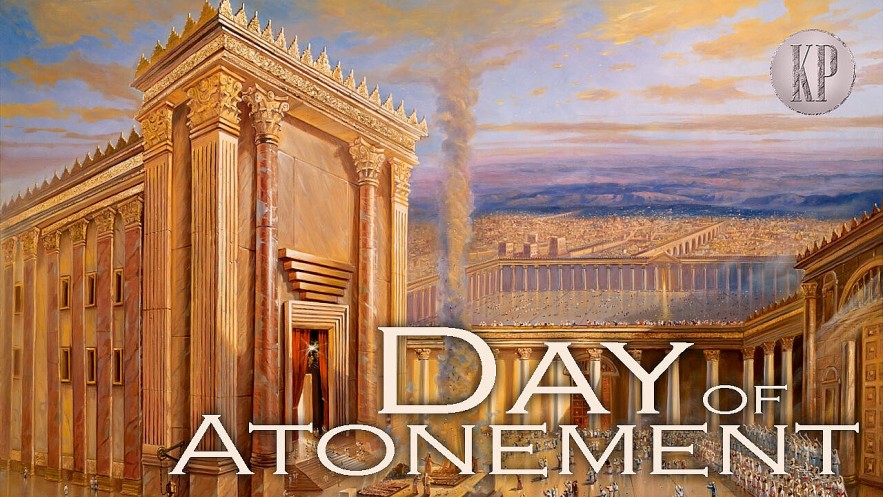 |
| Day of Atonement |
Yom Kippur, which means "Day of Atonement," is the holiest day in Judaism. It is celebrated very strongly in Israel and around the world. It's the end of "the Ten Days of Repentance," which began on Rosh Hashanah.
This year, Yom Kippur is on the 10th of Tishrei, which is in the early fall. Beginning at sunset and ending at sunset.
Many Israeli Jews are not religious and don't go to synagogue very often. However, on Yom Kippur, even nonreligious Jews fast. Five times a day are set aside for prayer on Yom Kippur. A small meal is eaten in the morning, and most people fast all day, though some only fast part of the time.
In synagogue, people often read from the Bible about how the High Priest offered a sacrifice for Israel's sins in the Holy of Holies of Solomon's Temple. Since the Temple was destroyed, the Talmud tells Jews to read and think about the Temple ritual instead of doing it.
People believe that confessing and feeling bad about past sins between Rosh Hashanah and the Day of Atonement will wash away those sins and let them start the new year "clean." It will judge you for a year for any sins you didn't forgive before Yom Kippur.
Even though many stores are closed on Yom Kippur, Israel has a lot to offer. You can learn about Jewish traditions, eat "Sabbath dishes," and more.
6 Oct Monday Sukkot Eve Observance, Hebrew
7 Oct Tuesday, Sukkot (Day 1), National Holiday, Hebrew
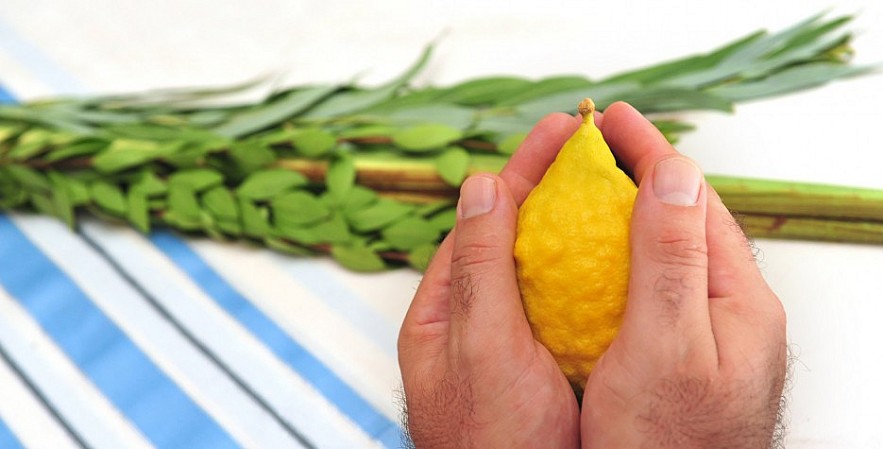 |
| Sukkot Day |
Succoth, Sukkos, the Feast of Booths, and the Feast of Tabernacles are some of the alternate names for Sukkot. The biblical festival takes place in the fall, around the end of September or the beginning of October according to western calendars, on the fifteenth day of the month Tishri.
Israel observes public holidays on the first and last days of the seven-day holiday.
In ancient times, Jews would travel to Jerusalem and offer sacrifices at the Temple on this holiday, along with Shavuot and Passover, which is called a pilgrimage festival (shalosh regalim).
In observance of Sukkot, the Jewish people reflect on the lengthy period of time they spent in the desert following their exodus from Egypt, and how their God provided them with protection during that time.
Some Bible translations may use the word booths instead of sukkot, which means huts in Hebrew. As a way to commemorate the occasion, Jewish families construct temporary dwellings called huts.
Having a roof made of branches and leaves is the most important part of the hut. You must maintain a view of the sky even when inside. The huts are meant to be temporary and very fragile because of this.
In order to celebrate Sukkot, it is customary to gather four distinct plant varieties: etrog (citrus fruit), palm, myrtle, and willow branches. One way to do this is by waving or shaking the branches, which represents joy and unity.
8 Oct Wednesday Sukkot (Day 2) Observance, Hebrew
9 Oct Thursday Sukkot (Day 3) Observance, Hebrew
10 Oct Friday Sukkot (Day 4) Observance, Hebrew
11 Oct Saturday Sukkot (Day 5) Observance, Hebrew
12 Oct Sunday Sukkot (Day 6) Observance, Hebrew
13 Oct Monday Sukkot (Day 7) / Hoshanah Rabah Observance, Hebrew
14 Oct Tuesday, Shemini Atzeret / Simchat Torah, National holiday, Hebrew
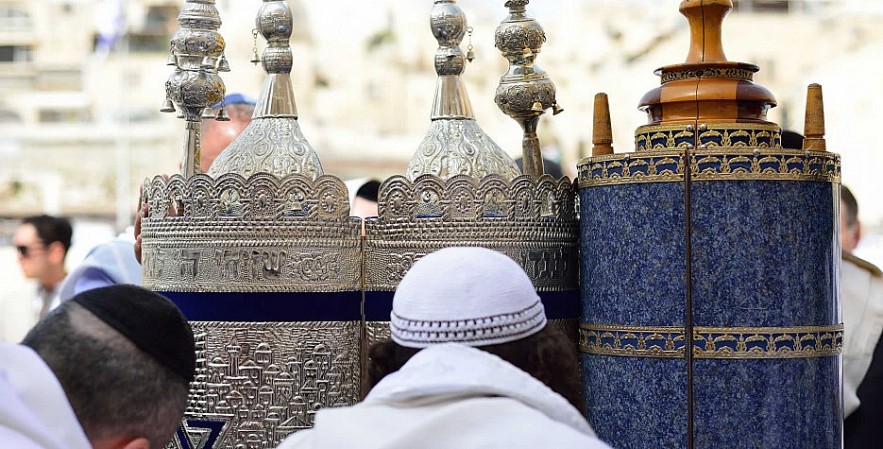 |
| Jewish man celebrate Simchat Torah. Image by druii |
Simchat Torah, a Jewish holiday that follows Sukkot, marks the end of the annual Torah reading cycle and the start of a new one. Celebrated on Tishrei 22.
The 23rd of Tisheri is a Jewish holiday outside Israel.
Simchat Torah means "rejoicing with the Torah" in Hebrew.
Morning synagogue readings include Deuteronomy and Genesis. Communities may also read Torah the night before Simchat Torah. The ark is opened and the Torah scrolls paraded around the synagogue during services. Children singing with candles and banners follow the procession.
First, Simchat Torah was the second day of Shemini Atzeret. Only later did its significance as a separate celebration become apparent.
Modern Simchat Torah celebrates Jewish identity in public. Thousands of Soviet Jews celebrated the festival in the streets. Dance in the street with the Torah is also a ritual in many US Jewish communities.
Many Jews who have lost interest in other Jewish observance still celebrate Simchat Torah.
Israel Postal Authority issued a holiday stamp in 1996.
29 Oct Wednesday Aliyah Day School Observance Observance
Even though Aliyah Day School Observance falls on Friday, 8 November 2024, it is a working day. Most businesses follow regular opening hours in Israel.
15 Dec Monday Hanukkah (Day 1) Observance, Hebrew
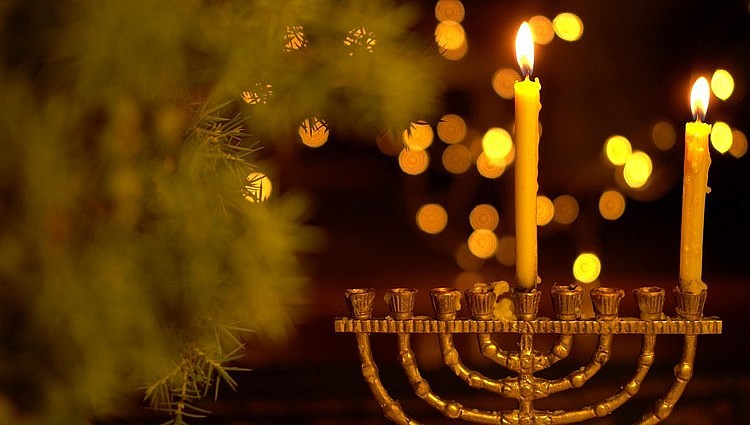 |
| On the first day of Hanukkah, only the shammash and the first candle are lit. |
The Festival of Lights, sometimes called Hanukkah or Chanukah, begins on the first night of the Jewish New Year. The eight-day Jewish festival of Hanukkah commemorates the fight for religious freedom by the Jewish people.
Holiday status is not granted to Hanukkah (Day 1). The opening hours of most businesses are regular.
16 Dec Tuesday Hanukkah (Day 2) Observance, Hebrew
17 Dec Wednesday Hanukkah (Day 3) Observance, Hebrew
18 Dec Thursday Hanukkah (Day 4) Observance, Hebrew
19 Dec Friday Hanukkah (Day 5) Observance, Hebrew
20 Dec Saturday Hanukkah (Day 6) / Rosh Chodesh Tevet Observance, Hebrew
21 Dec Sunday Hanukkah (Day 7) Observance, Hebrew
22 Dec Monday Hanukkah (Day 8) Observance, Hebrew
Hanukkah, Chanukah, or the Festival of Lights comes to a close on the eighth and final day of the Jewish holiday. The eight-day Jewish festival of Hanukkah commemorates the fight for religious freedom by the Jewish people.
Public holidays do not apply to Hanukkah (Day 8). The opening hours of most businesses are regular.
30 Dec Tuesday Asarah B'Tevet (Tenth of Tevet) Observance, Hebrew
Asarah B'Tevet is not a public holiday. Businesses have normal opening hours.
In Conclusion
Holidays in Israel are a remarkable experience, as the entire nation unites in celebration, and the country's cultural richness fosters strong and distinctive traditions.
International residents or visitors in Israel often find themselves uncertain about the significance of the holiday, appropriate activities, or suitable venues for celebration.
 Pegasus – Israel Spyware: How Infect Smartphone and Get Rid Of Pegasus – Israel Spyware: How Infect Smartphone and Get Rid Of Data leaked to a consortium of news organizations suggests that several countries use Pegasus, a powerful cyberespionage tool, to spy on rights activists, dissidents and ... |
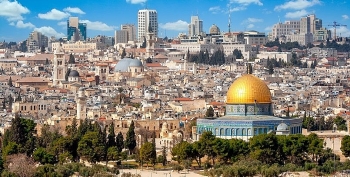 23 Weirdest Things in Israel 23 Weirdest Things in Israel Israel is a country located in the Middle East that is situated at the most eastern border of the Mediterranean Sea. When it comes to ... |
 Top 10 Most Beautiful Israeli Women in the World Today Top 10 Most Beautiful Israeli Women in the World Today Israel, the only Jewish nation on Earth, has experienced more than just losses, battles, and wars throughout its history. The country of Israel is renowned ... |
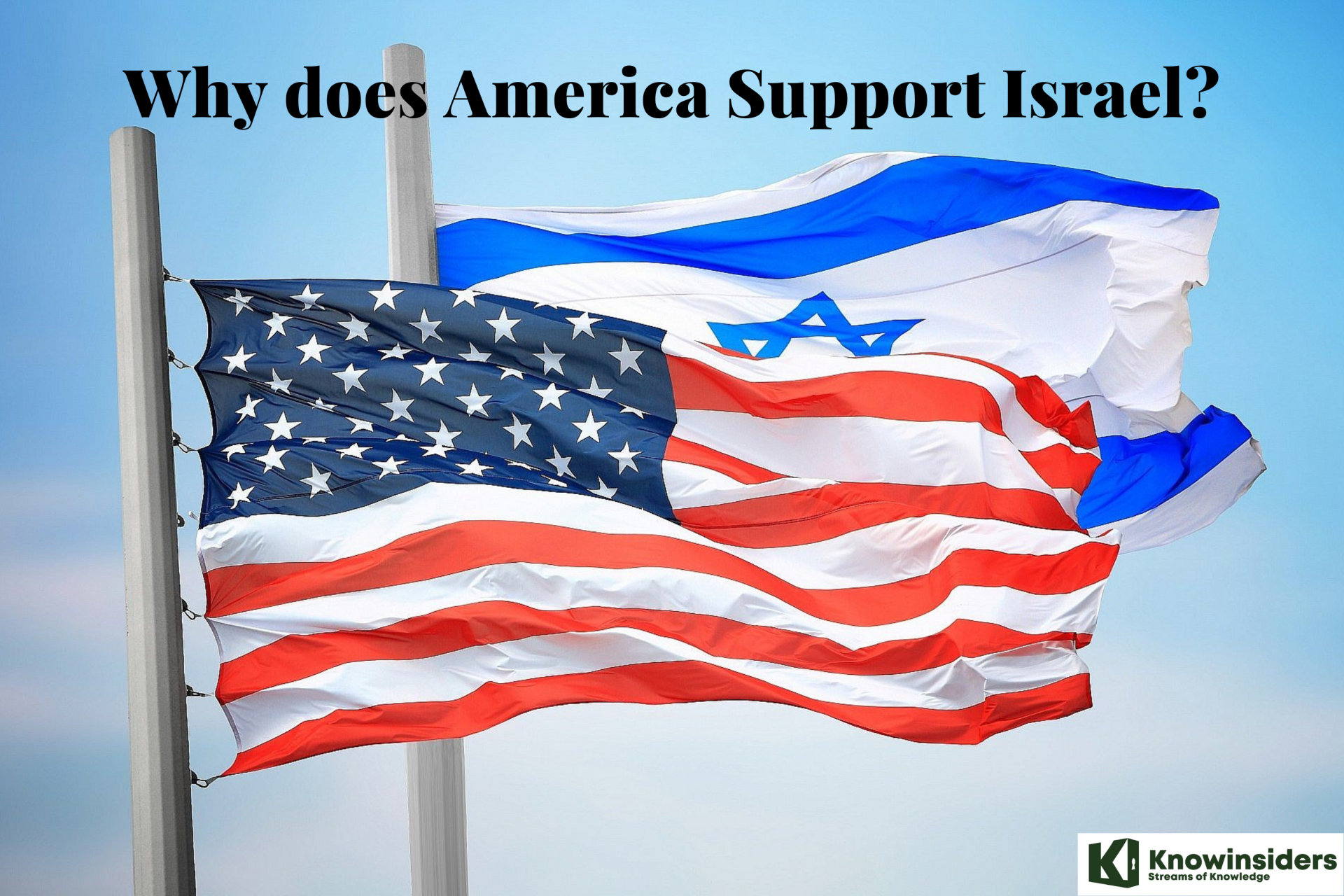 Why Does America Support Israel As A Best Friend? Why Does America Support Israel As A Best Friend? For a very long time, the United States of America has been considered Israel's closest friend. Why Does the United States Support Israel? Find out ... |



